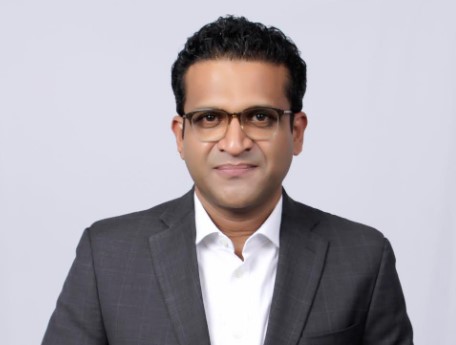Highlights:
Hisham Mundol is chief advisor to the Environmental Defense Fund in India. He writes about the EDF’s impact on climate protection


Hisham Mundol, Chief Advisor India, EDF
India is the world’s most populous country and is poised to become the world’s third-largest economy at $5 trillion over the next five years. Today, India’s per capita greenhouse gas emissions are about one-tenth of the U.S., and India accounts for just 3.4% of historical global emissions. Ambitious growth is paramount for India, but the country is also acutely aware that its emissions cannot grow in proportion to its economy. Therefore, India has a bold vision to become the first major economy to achieve zero-carbon industrialization. This will require concerted efforts from the public and private sectors. The Environmental Defense Fund (EDF) is designed to help drive this action—by acting as an authentic and distinctive partner for India, by sharing its scientific and economic expertise, and by strengthening the capabilities of our partners on the ground.
All solutions require a rock-solid foundation of science and economics, as well as a keen understanding of political economy – and we bring all of that. Environmental Defense Fund’s mission in India is to support an Indian path to shared, sustainable prosperity. We bring scientific and economic capacity to support governments and local partners in their efforts to achieve the bold goal of making India the first major economy to industrialize without carbon. Our priorities in India are to promote sustainable livelihoods in agriculture, livestock and fisheries, demonstrate opportunities to create value for shareholders through responsible business, and advance India’s climate technology ecosystem.
Just to illustrate, we recently launched a satellite (MethaneSAT) to help the global oil and gas sector reduce methane emissions. We partner with governments and others to build high-quality carbon markets, we help leading companies achieve their sustainability goals, we advise investors on understanding climate risks, and we foster the sustainability leaders of tomorrow with the Climate Corps Fellowship.
Below are some of the areas where EDF is making an impact in India:
Sustainable livelihoods: Nearly half of India – 700 million people – depends on agriculture, livestock and fisheries. Temperature fluctuations and weather patterns have significant impacts on crop, livestock and fisheries productivity. As a result, climate change poses a significant threat to India’s food systems – and to the livelihoods of hundreds of millions of Indians. At the same time, food systems generate a significant amount of climate pollution and contribute to a third of global greenhouse gas emissions. Faced with these challenges, farmers must work harder to maintain their yields, fishermen must expend more effort and travel long distances for a smaller catch, and they all face worsening economic and environmental impacts.
Our philosophy is to put farmers at the centre – with the aim of increasing incomes, supporting yields and securing climate benefits. Through our partners, EDF has launched and scaled programmes that provide farmers and fishers with tools and expertise to address these challenges and deliver a triple win for livelihoods, food security and the climate.
EDF has equipped 40,000 farmers with a new tool – the N-Balance tool – to manage nitrogen fertilizer use and save costs. EDF developed the N-Balance tool to help farmers and food companies estimate fertilizer requirements and analyze farming practices to determine how much fertilizer is efficiently needed on a given plot of land. With N-Balance, farmers can save ₹500-2,500 (about US$6-30) per growing season for households whose average monthly income is about ₹10,000 (about US$120).
Climate protection measures by companies: Climate change is both the environmental crisis and the economic opportunity of the century. By adopting sustainable business practices, companies have a significant opportunity to create shareholder value – but this requires authentic, ambitious and concerted action from the corporate sector. EDF works directly with corporate partners to develop and implement programs that embed sustainable practices, improve corporate sales and profits and inspire employees – while delivering environmental and climate benefits.
EDF’s Climate Corps program is helping to address this challenge by developing the next generation of climate leaders in India. By recruiting, training and placing postgraduates in leading companies and organizations, the program aims to support companies’ efforts to achieve India’s development and climate goals and build a talented workforce equipped with the knowledge and skills that will be essential to India’s growing green economy.
There are some broader obstacles that are specific to India in the area of climate technology. The starting point is that India needs to spend more on research and development in general. We spend 0.6 percent of GDP, compared to 1.5 percent in developed countries. Also, private sector research and development spending is 40 percent of the total, compared to 70 percent in developed countries. So there is a need to increase research and development spending and to get more private investment in research and development.
EDF is working to boost India’s climate tech ecosystem. We do this through platforms like Climate Tech Convening, which brings established companies, generalists and Indian research capabilities into the climate tech space to connect them with innovators and angel investors. Our aim is to drive more investment – domestic and foreign – into climate tech in India. We want to shine the spotlight on sectors that generate 60% of emissions but currently receive only 5% of climate tech investment – namely agriculture and food systems, manufacturing and construction, and freight and logistics.
Supporting government capacity: India’s national and local governments are committed to improving the lives of citizens by promoting renewable energy, reducing climate pollution and supporting vulnerable populations such as farmers and fishermen. Additional capacity – in the form of complementary technical expertise, new tools and improved data – can help strengthen government leadership and accelerate results.
EDF acts as a trusted partner to the Governments of India, drawing on our deep expertise in areas that align with national priorities, such as shaping India’s carbon market, improving air quality and supporting the deployment of renewable energy.
A key gap in carbon pricing in emerging economies like India is the need for capacity building at multiple levels. Carbon pricing is a complex area and requires sophisticated skills. Given that there are no active carbon markets in India, it is not surprising that capacity is lacking. This capacity needs to be expanded on the government, corporate and other stakeholder side. This capacity is to design, implement, manage and course-correct the domestic carbon market. EDF has worked with several governments and other stakeholders globally on carbon pricing and is committed to supporting both the compliance and voluntary carbon market in India.
Balance between economic growth and environmental sustainability: India plans to nearly double its economy by 2030, lifting hundreds of millions of people out of poverty and improving middle-class incomes, while also aiming to reduce its emissions to net-zero by 2040 and achieve net-zero carbon emissions by 2070. To achieve these goals, a vision is emerging that has never been achieved before by a major economy: zero-carbon industrialization.
The challenges associated with this vision are enormous, but so are the opportunities. Cement, for example, is one of the world’s most energy-intensive products with a huge carbon footprint, yet cement produced in India is among the most environmentally friendly in the world. And India’s construction industry is expected to reach $1 trillion by 2030, up from $650 billion in 2023.
At the heart of EDF’s partnership approach is finding ways to reconcile India’s economic and environmental needs.



